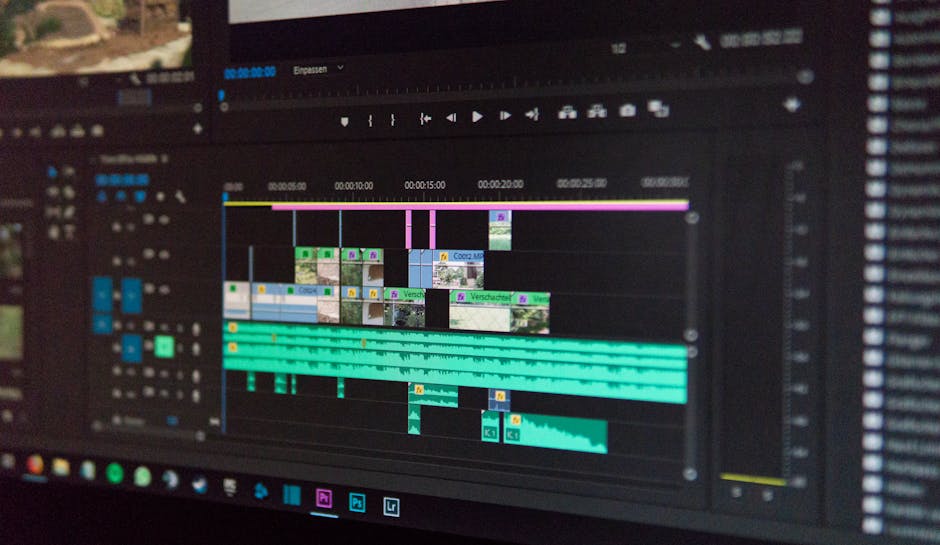Editing Tools: Comparing the Best Software
In the world of writing, editing is crucial. Whether you’re crafting a novel, preparing a report, or simply sending an email, the right editing tool can make a big difference. But with so many options out there, how do you choose the best software for your needs?
This article will compare some of the best editing tools available. We’ll look at their features, strengths, and who might benefit most from each. By the end, you’ll have a clear idea of which tool is right for you.
What Are Editing Tools?

Editing tools help you improve your writing. They can check for grammar mistakes, suggest better word choices, and even help with style. Think of them as your writing assistants. They catch errors you might miss and help your writing shine.
There are many types of editing tools. Some are simple spell checkers, while others are sophisticated software that offers in-depth feedback. Depending on your needs, you might prefer one over the other.
Why Use Editing Software?

Many writers wonder if they really need editing software. The short answer? Yes! Heres why:
- Time-Saving: Editing tools can quickly point out mistakes, saving you time.
- Improvement: They help you learn from your mistakes and improve your writing skills.
- Confidence: A polished piece boosts your confidence when sharing your work.
According to a study by the American Psychological Association, nearly 80% of readers find errors distracting. Using editing software can help you avoid those distractions and keep your audience engaged.
What Should You Look for in Editing Tools?

When choosing editing software, consider the following features:
- User-Friendly: Is the interface easy to navigate?
- Grammar Checks: Does it catch common errors?
- Style Suggestions: Does it help improve your writing style?
- Plagiarism Detection: Can it check for copied content?
- Compatibility: Does it work with your writing platform?
Each feature can impact your writing process in different ways. For instance, if you often write on the go, you might need software that works on mobile devices.
What Are the Best Editing Tools?

Now, lets dive into some of the best editing tools available today.
1. Grammarly
Grammarly is one of the most popular editing tools. It checks for grammar, punctuation, and style issues. You can use it as a web app or install it as a browser extension.
Pros:
- Real-time suggestions.
- Plagiarism checker.
- Customizable settings based on your writing style.
Cons:
- Some features require a premium account.
- Occasionally suggests changes that don’t fit context.
Grammarly is great for anyone who writes frequently, from students to professionals.
2. ProWritingAid
ProWritingAid offers a comprehensive editing experience. It checks grammar, style, and even readability. it’s especially useful for long-form writers like novelists.
Pros:
- In-depth reports on your writing.
- Integrates with various writing platforms.
- Customizable feedback options.
Cons:
- Can be overwhelming for new users.
- Some features are better suited for advanced writers.
If you’re working on a book or a lengthy project, ProWritingAid might be the right choice.
3. Hemingway Editor
The Hemingway Editor focuses on making your writing clear and concise. It highlights complex sentences and suggests simpler alternatives. This tool is perfect for anyone wanting to improve their writing style.
Pros:
- Easy-to-use interface.
- Focuses on readability.
- Great for writers who want to simplify their prose.
Cons:
- Limited grammar checking.
- Doesnt check for spelling errors.
Hemingway Editor is ideal for bloggers and content creators looking to enhance clarity.
4. Microsoft Word
Microsoft Word is more than just a word processor. it’s built-in editing features help catch basic grammar and style issues. Many people already use it, making it a convenient option.
Pros:
- Widely used and familiar to many.
- Integrated tools for collaboration.
- Offline accessibility.
Cons:
- Basic grammar checking compared to specialized tools.
- Can be expensive without a subscription.
If you prefer a classic word processor with some editing features, Microsoft Word might be sufficient.
5. Scribens
Scribens is a free online grammar checker that provides solid feedback. it’s a great option for those on a budget. It focuses on catching common mistakes and improving vocabulary.
Pros:
- Free to use.
- Offers suggestions for synonyms.
- Good for quick checks.
Cons:
- Less comprehensive than paid options.
- Ads can be distracting.
Scribens is a good choice for students or casual writers who need basic help.
How Do You Choose the Right Tool?
Choosing the right editing tool depends on your specific needs. Here are some questions to ask yourself:
- What type of writing am I doing?
- Do I need basic checks or in-depth analysis?
- Is my budget a concern?
Once youve answered these questions, youll be better equipped to select the tool that fits you best.
Are There Any Free Editing Tools?
Many people are looking for free options. Fortunately, there are several good choices:
- Scribens: A solid free grammar checker.
- Grammarly Free: Offers basic checks.
- Hemingway App: Free online version for style checks.
While free tools may lack some advanced features, they can still be very helpful. They provide essential feedback without any cost.
Final Thoughts: what’s the Best Editing Tool for You?
The best editing tool is the one that meets your specific needs. Remember, no software is perfect. Each has it’s strengths and weaknesses.
Try a few and see which one you like best. Maybe youll find that combining tools works for you. For instance, you could use Grammarly for grammar checks and Hemingway for style improvement.
In conclusion, investing in an editing tool can greatly enhance your writing. It saves time and helps you produce clearer, more engaging content. Start exploring your options today and watch your writing skills grow!
For more tips on improving your writing, check out our article on writing tips for beginners.



